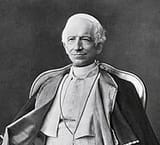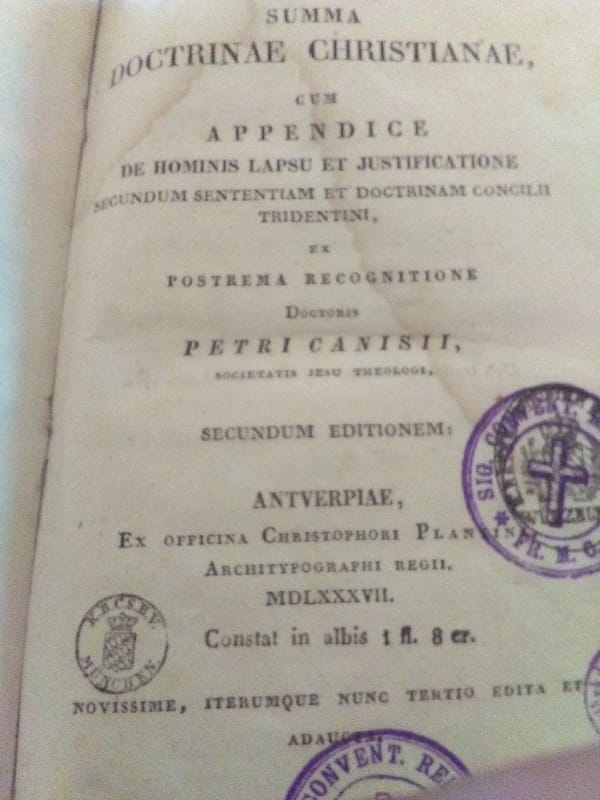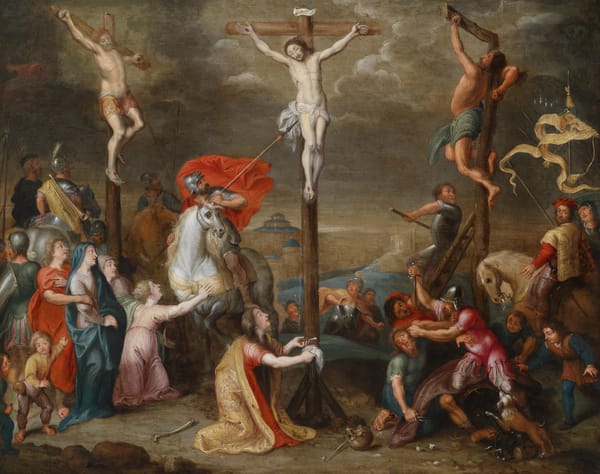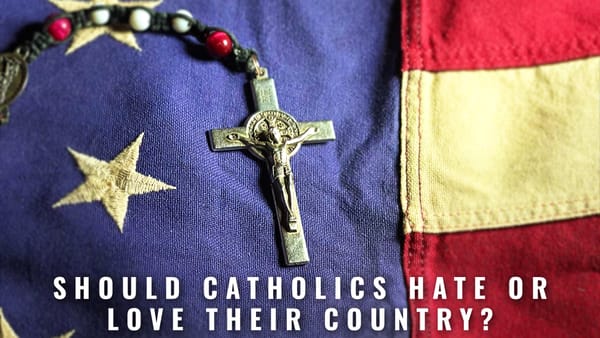Butler's Irish Catechism - Lesson 4 - On the Trinity and the Incarnation
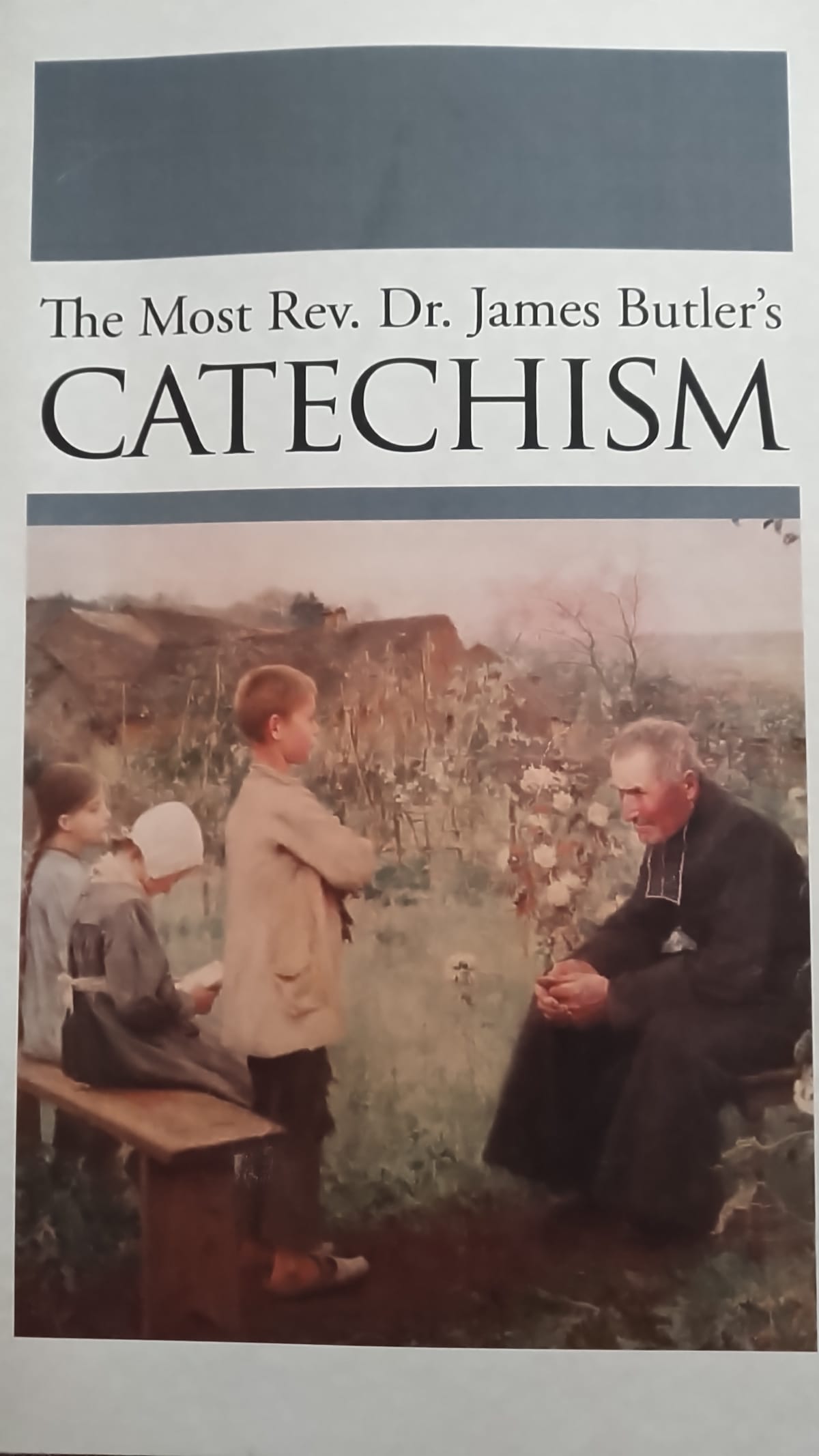
Q: How many persons are there in God? A. Three divine persons, really distinct, and equal in all things. 1 John 5:7.
Q. How do you call the three divine persons? A. The Father, the Son, and the Holy Ghost.
Q. Is the Father God? A. Yes; the Father is God, and the first person of the Blessed Trinity.
Q. Is the Son God? A. Yes; the Son is God, and the second person of the Blessed Trinity.
Q. Is the Holy Ghost God? A. Yes; the Holy Ghost is God, and the third person of the Blessed Trinity.
Q. What means the Blessed Trinity? A. One God in three divine persons.
Q. Are the three divine persons three Gods? A. No; they are only one God, having but one and the same divine nature; and they are from eternity.
Q. Is any of the three persons more powerful or more wise than the others? A. No; as the three divine persons are all but one and the same God, they must be alike in all divine perfections; therefore, one cannot be more powerful or more wise than the others.
Q. Did one of the three divine persons become man? A. Yes; God the Son, the second divine person, became man. - John 1:14
Q. How did God the Son become man? A. He was conceived by the Holy Ghost and born of the Virgin Mary. - Apostles Creed.
Q. What do you mean by saying that the Son of God was conceived by the Holy Ghost? A. I mean that He assumed human nature, that is, a body and a soul like ours, by the power and operation of the Holy Ghost.
Q. Where did God the Son take a body and soul like ours? A. In the chaste womb of the Virgin Mary, and He was born man of her.
Q. How do you call God the Son made man? A. Jesus Christ.
Q. What is the meaning of these words, Jesus Christ? A. Jesus signifies Savior, and Christ signifies the anointed; and St. Paul says that at the name of Jesus every knee should bend. - Philippians 2:10
Q. Did Jesus Christ remain God when He became man? A. Yes; He was always God.
Q. Was Jesus Christ always a man? A. No; only from the time of His conception or incarnation.
Q. What means the Incarnation? A. That God the Son, the second person of the Blessed Trinity, was made man.
Q. What do you believe Jesus Christ to be? A. True God and true man.
Q. Why did Christ become man? A. To redeem and save us.
Q. How did Christ redeem and save us? A. By His sufferings and death on the cross.
Q. Was it by His passion and death also Christ satisfied the justice of God for our sins? A. Yes; and by these He delivered us from hell and from the power of the devil.
Commentary: Here we have the two cornerstones of the Catholic faith - the Trinity and the Incarnation. The two most unfathomable, and yet most necessary to be believed in, mysteries of our religion. If either one of these mysteries were to be false, the entire Catholic religion would be destroyed from the base. That these two mysteries are indeed true cannot be denied except by one who wishes to ignore the divine revelation. Jesus Christ was truly God and man, and He revealed the Trinitarian nature of the Godhead and His Hypostatic union plainly enough to His Apostles who have since passed it on and defended these mysteries before the scorn and mockery of the world. The Popes in particular have courageously defended these two truths against all manner of heretics and adversaries, and the Church will continue to be faithful to Christ and His revelation until the end of time.
Summary: The Blessed Trinity, one divine nature with three divine persons, the Father, the Son, and the Holy Ghost; deigned from all eternity that the second person of that Triune Godhead, God the Son, would become a man and die for the sins of the world so that we may be saved and redeemed.
